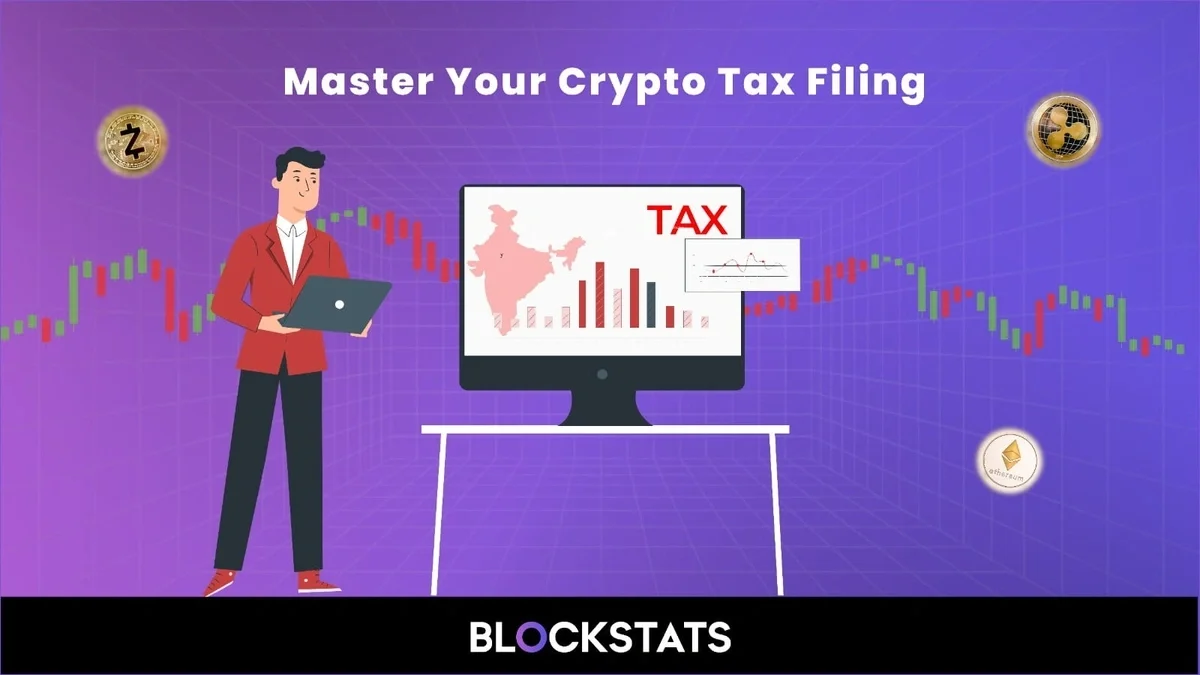How to File Your Crypto Taxes in India in 2026?
Let’s be honest—filing crypto taxes in India sounds scary. Multiple wallets, hundreds of trades, TDS rules, and that flat 30% cryptocurrency tax? Ugh.
But don’t worry—at Blockstats, India’s trusted crypto tax filing platform, we have got you covered.
In this guide, we will walk you through how to file your crypto taxes in India for 2026, even if you have never filed taxes on Bitcoin, Ethereum, Dogecoin, or even your “meme coin” collection. From crypto capital gains tax to TDS compliance, we will break it all down so you can stay compliant without losing your peace of mind.
Step 1: Know the Rules (Yes, the Government Taxes Your Crypto)
If you made money trading, selling, or spending crypto in India, guess what? The government wants a piece of it.
Here is how crypto tax laws work in India:
-
30% flat tax on profits from crypto. Does not matter if you made ₹1,000 or ₹10 lakh.
-
No deductions allowed. Forget claiming internet bills or laptop costs.
-
1% TDS is auto-deducted every time you trade or sell crypto (over a certain limit).
-
Losses? You cannot set them off against other income. Yes, even if you are down bad, no tax relief.
- Even rewards from a crypto airdrop can count as a taxable event under Indian rules.
In short: You win = you pay tax. You lose = sorry, try again next year.
Step 2: Gather All Your Crypto Activity
Before filing, gather all your crypto transaction history for the year. Think of this like spring cleaning, but for your crypto wallet.
Make a list of:
-
What coins/tokens you bought or sold
-
When you bought/sold them
-
How much you made (or lost) on each transaction
-
TDS already deducted (you can check this in Form 26AS or your exchange report)
Most Indian crypto exchanges offer a downloadable crypto tax report—so you do not have to track every Satoshi manually.
Step 3: Choose the Right ITR Form
For most crypto investors, ITR-2 is your go-to form in 2026.
If you:
-
Have a job or a salary
-
Trade crypto casually or invest long-term
-
Do not run a crypto business
...then ITR-2 will do just fine.
But if you are doing daily trading as a business, you may need ITR-3. When in doubt, ask a CA (or just play it safe with ITR-2).
Step 4: Report in the Right Section
There is now a special section in your income tax return called Schedule VDA (Virtual Digital Assets).
Here is what you need to fill in:
-
Coin/token name (Bitcoin, ETH, etc.)
-
Date you bought and sold
-
How much you paid
-
How much you sold it for
-
Profit made (selling price – cost price)
-
TDS deducted (if any)
Take your time and double-check. One wrong number could get you a love letter from the IT Department.
Step 5: Pay the Remaining Tax
Let’s say you made ₹1,00,000 in profit from crypto.
The government wants 30% of that = ₹30,000.
But only ₹1,000 was deducted as TDS. That means you still owe ₹29,000, and you need to pay it before submitting your return.
You can pay it using Challan 280 online—it is fast and easy.
Step 6: File Your Return Before the Deadline
The deadline for filing crypto taxes in India for FY 2025–26 (AY 2026–27) is July 31, 2026.
If you miss it:
-
You will pay a late fee (₹1,000 to ₹5,000)
-
You might get a notice
-
Interest will build up if you owe tax
So, don’t wait till the last minute. File early and sleep better.
Bonus Tips
-
Keep records: Keep your transaction history saved securely (Excel, PDF, cloud—whatever works).
-
Watch out for audits: The Income Tax Department is using AI and analytics. It is not worth hiding your gains.
-
Use tax tools: Use a crypto tax calculator in India like Blockstats to automate the process.
Avoid Crypto Tax Mistakes & File Accurately with Blockstats
Crypto taxes in India are not exactly fun, but they are not rocket science either. If you keep good records, stay honest, and file on time, you will be just fine.
For a hassle-free experience, let Blockstats, India’s trusted crypto tax filing platform, handle the heavy lifting with its advanced features. From automated transaction tracking to precise crypto tax calculations in India, we make compliance simple, accurate, and stress-free, so you can focus on growing your portfolio, not decoding tax rules.
Remember: Filing taxes is not about losing your gains—it is about protecting them and keeping your investments safe.
